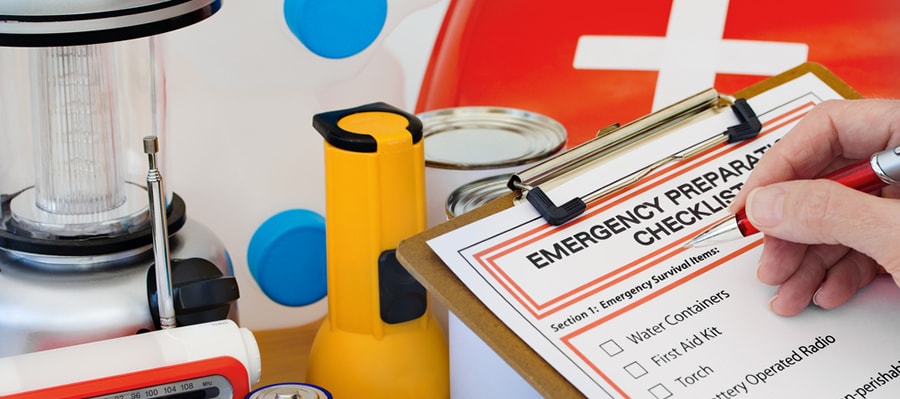
Are you and your family prepared?
Disasters often strike without warning. Not being prepared can put you and your family at risk for the dangers of natural disasters such as injury, illness, and the destruction of your home and property. By taking a few simple steps to plan ahead, you can minimize the impact of these events.
Department of Emergency Management (EM)
The Griffin Hospital Department of Emergency Management (EM) supports the hospital’s readiness and response to disaster-related events through mitigation, planning and exercises so that we can be ready to support the community in a time of crisis.
Emergency resources for you and your family.
Additionally, the hospital can be a resource for personal and community emergency preparedness. Here, you will find a list of local, state and federal resources to help you develop a plan for you and your loved ones as well as relevant monthly topics for consideration. The Griffin Hospital Emergency Management web page is your link to personal preparedness.
Important Contacts
- American Red Cross (CT Region)
- CDC
- CT 2-1-1
- CT Dept. of Emergency Services & Public Protection
- FEMA
- Milford Health Dept.
- Naugatuck Valley Health District
- Pomperaug District Department of Health
- Ansonia Emergency Management
- Derby Emergency Management
- Oxford Emergency Management
- Seymour Emergency Management
- Shelton Emergency Management
Emergency Planning Resources
- FEMA Family Emergency Plan
- Preparing Makes Sense for Older Americans. Get Ready Now.
- Prepare For Emergencies Now: Information For People With Disabilities.
- Preparing Your Pets for Emergencies Makes Sense. Get Ready Now.
Get Involved
Whether a medical provider or not, there are many opportunities to get involved in disaster response on a local, state or national level. Click on the links below to learn more about these programs and how to join.
CERT Team: Community Emergency Response Team
The Community Emergency Response Team (CERT) Program educates people about disaster preparedness for hazards that may impact their area and trains them in basic disaster response skills, such as fire safety, light search and rescue, team organization, and disaster medical operations. Using the training learned in the classroom and during exercises, CERT members can assist others in their neighborhood or workplace following an event when professional responders are not immediately available to help. CERT members also are encouraged to support emergency response agencies by taking a more active role in emergency preparedness projects in their community. For more information, click on the following site. Use the state directory to find a CERT program near you!
Emergency Credentialing (ESAR-VHP)
The Emergency System for Advance Registration of Volunteer Health Professionals (ESAR-VHP) is a federal program created to support states and territories in establishing standardized volunteer registration programs for disasters and public health and medical emergencies. The program, administered on the state level, verifies health professionals’ identification and credentials so that they can respond more quickly when disaster strikes. By registering through ESAR-VHP, volunteers’ identities, licenses, credentials, accreditations, and hospital privileges are all verified in advance, saving valuable time in emergency situations.
Medical Reserve Corps
Many MRC members are just like you – nurses, doctors, pharmacists, therapists, public health officials and other community members who believe in keeping your local area healthy, prepared and resilient. They share your commitment to helping others and making a difference.
You may also work closely with staff members from the local health department, emergency management agency, hospital or other organizations that partner with the MRC. In fact, the services that you provide may help these other organizations to meet their mission.